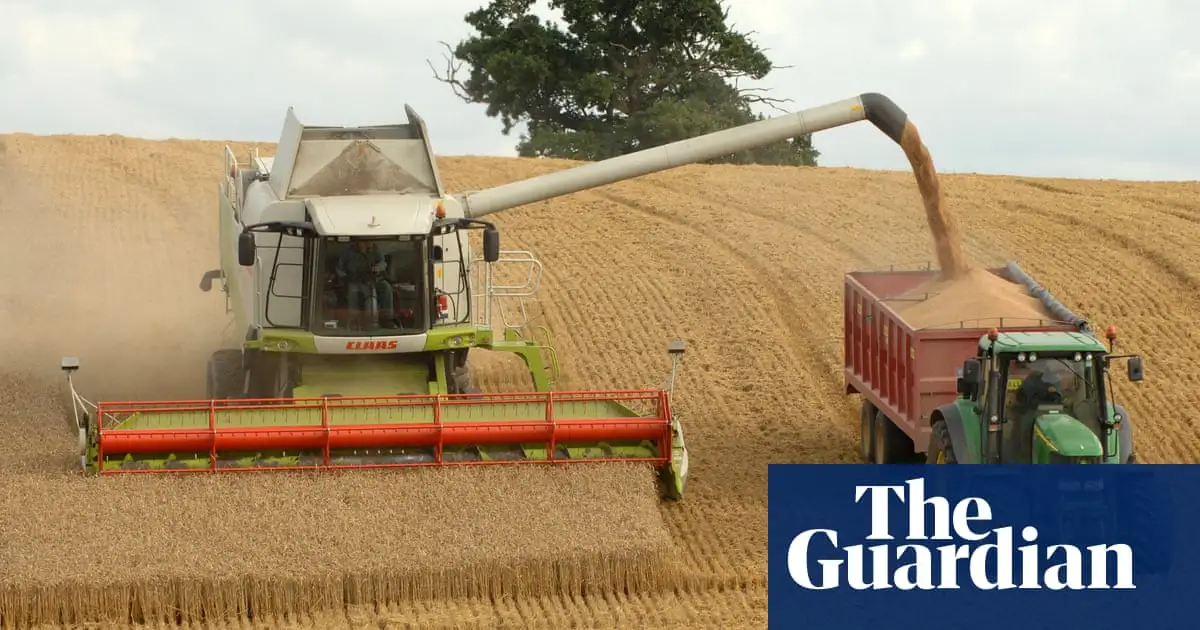- cross-posted to:
- [email protected]
- [email protected]
- cross-posted to:
- [email protected]
- [email protected]
England has suffered its second worst harvest on record – with fears growing for next year – after heavy rain last winter hit production of key crops including wheat and oats.
The cold, damp weather, stretching from last autumn through this spring and early summer, has hit the rapidly developing UK wine industry particularly hard, with producers saying harvests are down by between 75% and a third, depending on the region.
On staple crops, England’s wheat haul is estimated to be 10m tonnes, or 21%, down on 2023, according to analysis of the latest government data by the Energy and Climate Intelligence Unit (ECIU).
Winter barley was 26% down on last year, and the winter oilseed rape harvest was down 32%, in data released by the Department for Environment Food and Rural Affairs on Thursday.
The ECIU estimates that farmers could lose £600m on five key crops – wheat, winter and spring barley, oats and oilseed rape – where production was down 15% in total…



Worth noting that lower UK production, either caused by climate change such as the article talks about, or farmers either turning over fields to non farming uses such as solar or housing as farming is no longer profitable for them, means increased inflation for food. It also means we are less resilient to further food inflation if other countries have their own climate changed farming issues as we saw a little while ago.
Failure to invest in farming now means small savings today but higher food prices tomorrow.